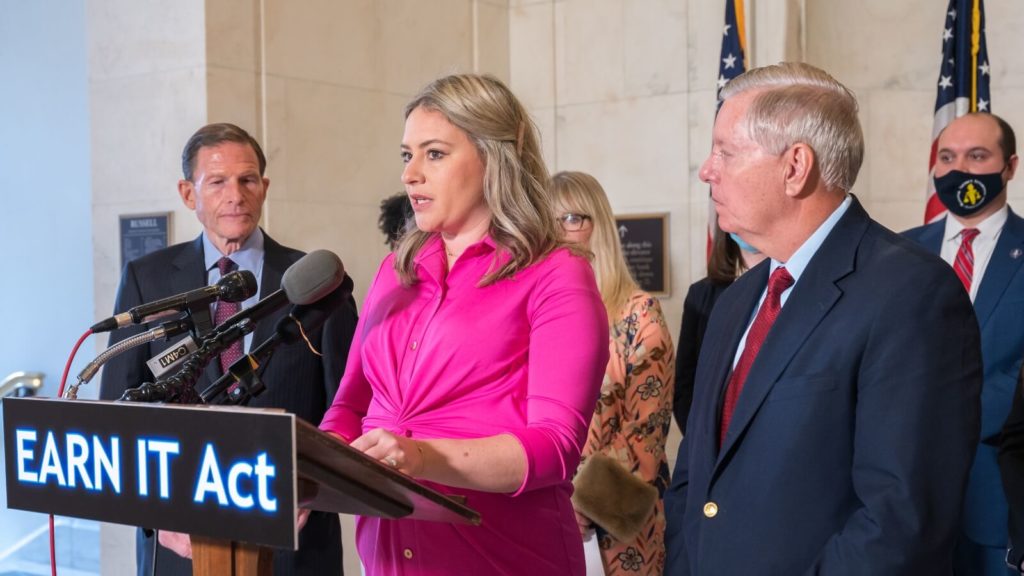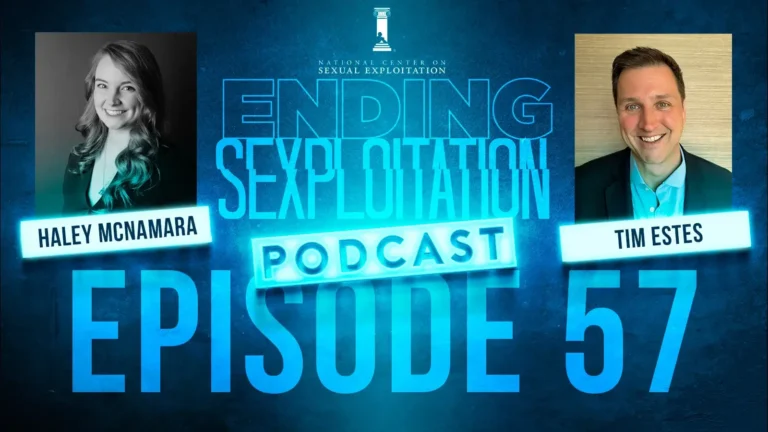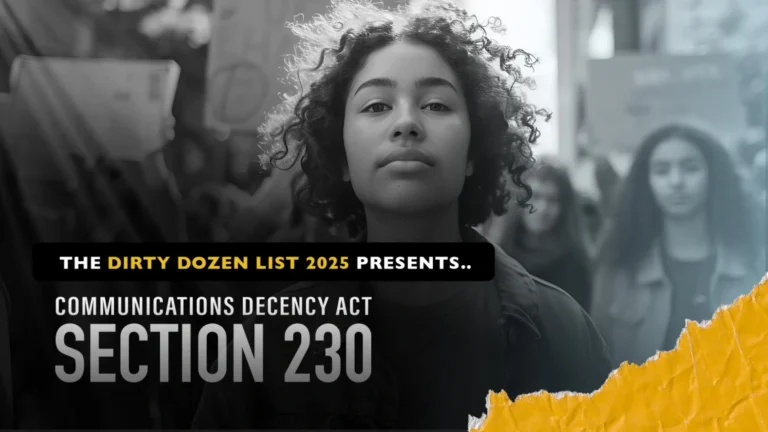For years, we have been advocating for policies, practices, and legislation that would better protect the most vulnerable online: children. And this week, the strongest piece of legislation that can confront the explosion of online child sexual abuse material was unanimously passed by vote in the Senate Judiciary Committee!
The EARN IT Act (Eliminating Abusive and Rampant Neglect of Interactive Technology) holds technology companies accountable if they aid and abet the distribution and/or consumption of child sexual abuse material.

Momentum Behind the EARN IT Act Has Been Growing
The fight to ensure children are safe online can feel like an uphill battle.
We started this journey to pass the EARN IT Act three years ago, when the bill passed unanimously in the Senate Judiciary in 2020. Politicians from across the aisle could all see the importance given the devastating impact of online sexual exploitation of children and the rise of child sexual abuse material online. Heavy opposition from Big Tech and political timing in Congress prevented the legislation from moving forward.
Since then, explosive whistleblower allegations about how much Facebook and Instagram knew about the harms they caused young people, especially teen girls, rocked the news. The information revealed indicated that Facebook’s own studies recognized how they perpetuated the problem… And what a problem it is. Teens, especially girls, report decreased body image satisfaction, increased depression, anxiety, and suicidality.
Following Frances Haugen’s revelations, congressional hearings were held and representatives of platforms such as TikTok, Snapchat, and Youtube all responded with the same rote talking points—they care, they are doing everything they can, and they can certainly regulate themselves.
But can we trust Big Tech and online platforms to regulate themselves when they’ve proved otherwise?
Current Internet Regulations Date Back to 1996
In 1996, Congress passed the Communications Decency Act (CDA)—also known as CDA Section 230 or CDA 230—allowing the young internet to grow by establishing minimum regulations and relying on good faith practices by the companies themselves. This meant that platforms were not responsible for what third parties published, nor were they incentivized to do anything about moderating or screening that content.
This minimum regulation did allow the internet to flourish, but it also allowed far more nefarious things to grow too, including harmful marketing, a culture of narcissism, and the substantial increase of online sexual exploitation of children. Not only are kids exposed to harmful content, but to the predators who seek to use them to create more harmful content.
Sex trafficking and other forms of sexual exploitation have moved online and can occur as easily in a child’s bedroom as in a dark alley.
It’s time for the CDA 230 to be clarified and that means the passage of the EARN IT Act.
Arguments Against EARN IT Don’t Stand Up
Naysayers fear that EARN IT would interfere with privacy protections or encryption, but it does no such thing. Platforms already know what you do and say online.
As the Facebook whistleblower and the congressional hearings revealed, platforms can already identify individuals, their ages, and their interests and market to them accordingly—and they have the money and ability to better screen and moderate for CSAM and predatory behavior.
Much of these restrictions can be easily catered to children without interfering with adult freedoms.
EARN IT simply says: “adopt the recommended practices or develop comparable ones of your own that better protect kids, and then you earn your Section 230 immunity.” Under the EARN IT Act, immunity isn’t automatic if guidelines to protect kids are not implemented.
The EARN IT Act creates the much-needed incentive for platforms to create safe environments for children online that do not burden parents. Moreover, the 2022 version of EARN IT addresses concerns around encryption, allowing sites to use encryption without a presumption that they are doing so to undermine the guidance of a newly-created commission.
Protecting Kids Online is the Number One Priority
Despite the opposition, NCOSE has led the charge to create a truly incredible coalition of advocates, lawmakers, and organizations that are willing to stand up and fight for the EARN IT Act. Now with the 2022 re-introduction, bipartisan support, and passage of the EARN IT Act, we are seeing the beauty of what true partnership can accomplish.
No one organization could do this alone. The NCOSE-authored letter of support of EARN IT was signed by a diverse 256 U.S. organizations—including 62 survivor-led groups.
After devastating revelations on the harms of social media to kids (that sadly only confirmed what most of us have suspected), it’s time to tackle clarification of CDA 230 and make the internet a place where children can safely interact.
Next Steps and How You Can Support the EARN IT Act
Next, the EARN IT Act will move on to a full vote in the Senate. The impact EARN IT will have on the world of online exploitation cannot be understated.
You can read more about the EARN IT Act on our website here and take action to urge your own members of Congress to sponsor and support this critical legislation.
Please help us spread the word about the truth of the EARN IT Act by sharing one of our posts on Facebook, Twitter, LinkedIn, and Instagram.



